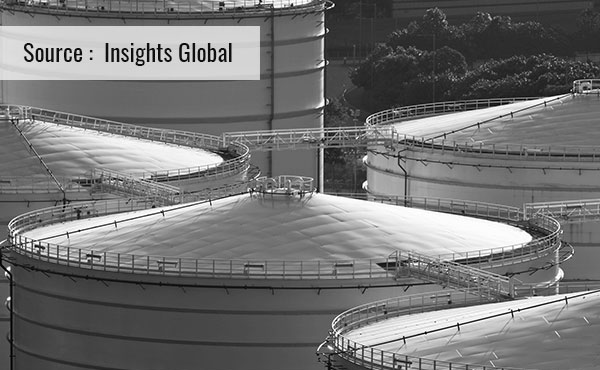Source : Insights Global [………………………………………..]
As the world is slowly emerging from the Covid-19 pandemic, it is safe to say that the corona virus has had a profound impact on nearly every aspect of our daily lives. Besides the more visible effects on public health, society, and transportation, Covid-19 also sent a shockwave through the global economy.
This shockwave also had its effects on tank terminals: As soon as the true scope of the Covid-19 pandemic became apparent, the oil market shifted from a backwardated market into a deep contango. Needless to say, this contango immediately led to a significant increase in demand for tank storage.
The road less traveled?
The demand for road and jet fuels has been affected most by the Covid-19 pandemic. While the short-term effects of national lockdowns on demand for fuels are relatively straightforward (fuel consumption is strongly linked with people’s mobility patterns), it will be the longer-term effects that are the most interesting to keep an eye on.
Large corporations like banks, IT companies, and insurers are already preparing for a ‘new normal,’ where their staff will work more from home after Covid-19 than they did before (source). As people will commute less to their offices, a decline in overall car traffic volume could be expected. Together with the ongoing electrification of road vehicles, we expect that the current surplus for gasoline will increase further.
When we take a look at diesel consumption, reversed dieselization of passenger cars will lead to a faster decline than we will see for gasoline. That being said, because the electrification of trucks is not expected to happen in the coming years, there will still be a large volume of diesel consumption left.
For jet fuel, we forecast that the current deficit for North-Western Europe will grow at a slower pace. While it is expected air travel will largely recover, analysts forecast it will take at least towards 2023 until air travel is back at pre-pandemic levels.






















































